Bad breath is a common condition not only in adults but also in children, the risk is even higher. The main cause of bad breath is improper oral hygiene, so parents can completely overcome this condition at home, but bad breath can actually be an abnormal manifestation directly related to the health of children. Therefore, if children have bad breath for a long time after implementing hygiene methods, parents should still take their children to the dentist for timely treatment.
1. Causes of bad breath in children
Bad breath in children is a condition in which the child’s mouth has a bad odor, people around will easily recognize this unpleasant odor when the child breathes out through the mouth or when talking or laughing. Bad breath in children can be due to the following causes:
1.1. Dry mouth
Saliva plays a role in cleaning and moistening the oral cavity to help prevent the attack of harmful bacteria. Therefore, dry mouth is the most common cause of bad breath in children.
Dry mouth is the result of children often breathing through their mouths due to stuffy noses, snoring while sleeping, or children having the habit of sucking fingers, sucking toys, etc. At this time, a lot of air circulation will lead to dry mouth, thereby creating a favorable environment for bacteria to survive and develop, causing bad breath.
To limit this condition, it is necessary to pay attention to training children to breathe completely through their noses, not letting children suck their fingers regularly and giving them enough water every day.
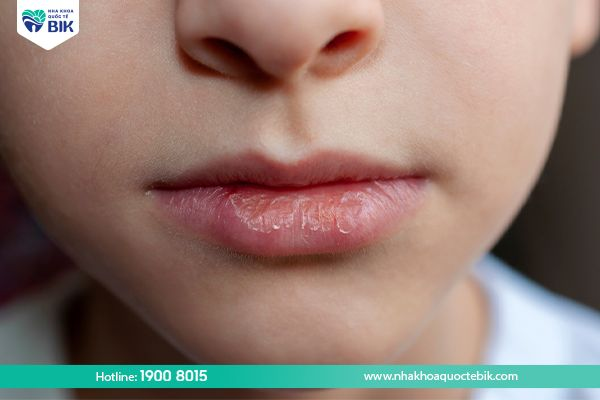
1.2. Improper oral hygiene
Improper oral hygiene in children or adults is the main cause of bad breath. This causes food residue to remain in the gaps between teeth, gums or on the surface of teeth that are not cleaned, creating conditions for bacteria to grow and produce unpleasant odors.
Oral hygiene is very important to limit bad breath in the mouth, even for children who have not yet grown teeth. Children should be brushed as soon as their first baby teeth appear and should be instructed to brush their teeth when they are old enough.
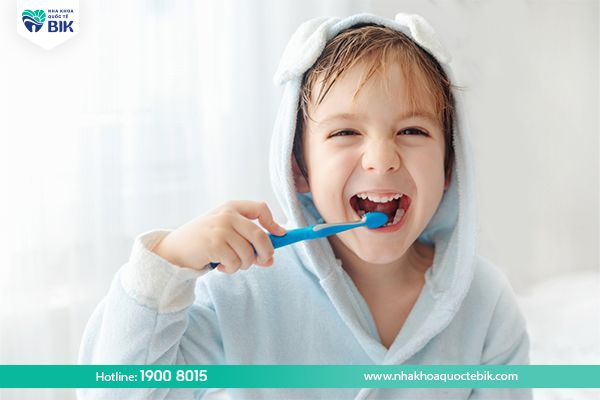
1.3. Due to oral diseases
Sometimes children’s bad breath is caused by other oral diseases such as gingivitis, tooth decay, tooth abscess, etc. Therefore, parents should pay attention to regularly checking their children’s oral health and take them to the dentist when there are unusual signs.
1.4. Foreign objects in the nose
Bad breath in children can be the result of foreign objects being stuck in the nasal passages. In fact, children are always curious and their nostrils are the right size for small objects such as beads, beans, accessories, toys, etc. to easily get stuck in the nasal passages. This can damage the nasal mucosa, causing inflammation and making the child’s breath smell bad.
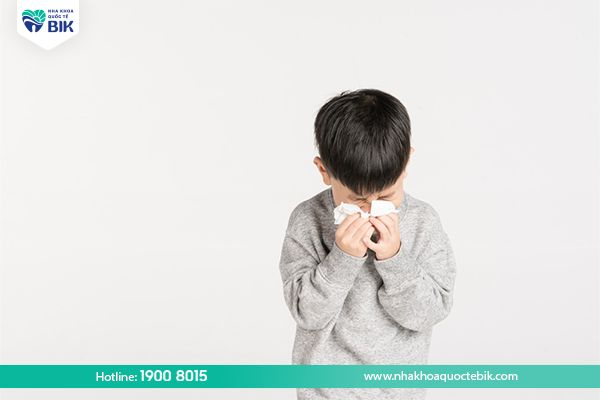
1.5. Passive smoking
Parents or people around them often smoke when in close contact with children, causing children to accidentally inhale cigarette smoke. This directly affects the child’s breathing as well as their oral health and overall health later on.

1.6. Due to diet
Your baby’s bad breath can also be caused by some odorous foods that your baby eats or drinks. Foods rich in protein such as red meat, fish, cheese, etc. will be hydrolyzed in the oral cavity and release some substances including sulfur, which cause your baby’s mouth to smell bad. A diet low in carbohydrates can also be the cause of bad breath in children.
1.7. Other diseases
Many respiratory diseases can also affect children’s breathing, such as sinusitis, gastric reflux, seasonal allergies, tonsillitis, gingivitis or diabetes. With these diseases, good treatment and control of the disease can improve the smell of breath.
2. What to do if children have bad breath?
To overcome bad breath in children, the first thing parents need to pay attention to is oral care. In addition, drinking enough water and limiting mouth breathing will also reduce the growth of bacteria that cause bad breath.
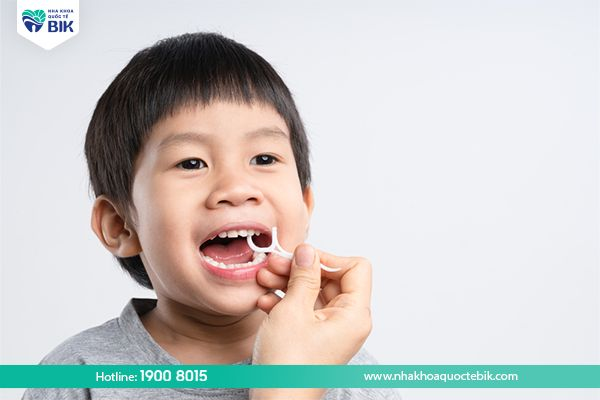
Parents can apply some of the following measures to overcome bad breath in children:
– Create a habit for children to brush their teeth regularly and properly after each meal by choosing a toothbrush and toothpaste that they love.
– Give children plenty of water to drink, practice the habit of drinking water regularly to avoid dry mouth and reduce saliva secretion.
– Clean the tongue of children, especially infants, with specialized tools to avoid damaging the soft tissues in the oral cavity.
– Use dental floss to remove food residue stuck between children’s teeth because the toothbrush does not clean completely.
– Sterilize and clean the pacifier regularly when the child uses it.
3. When should you take your child to the dentist?
In fact, parents should take their children to the dentist regularly at least every 6 months for regular check-ups and oral health care. With bad breath in children, if oral hygiene measures do not improve, parents should also take their children to a reputable dentist for examination.
The doctor will find the specific cause of bad breath, which may be due to oral diseases or problems related to the respiratory system, stomach, etc. At this time, treatment must be carried out according to the doctor’s instructions to completely resolve the problem of bad breath. Bad breath greatly affects children’s confidence in communication and daily activities, so parents need to pay attention and help their children recover quickly.
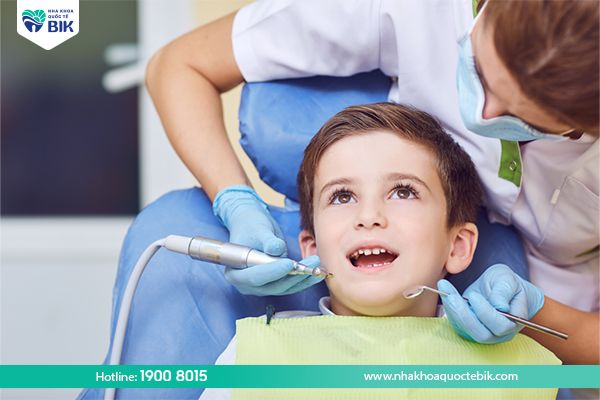
So children have bad breath mainly due to irregular and improper oral hygiene, causing bacteria to grow and develop gradually, causing unpleasant odors in the breath. In case it cannot be remedied at home with normal oral hygiene measures, parents should take their children to the dentist for examination to find the exact cause of bad breath in children.


















